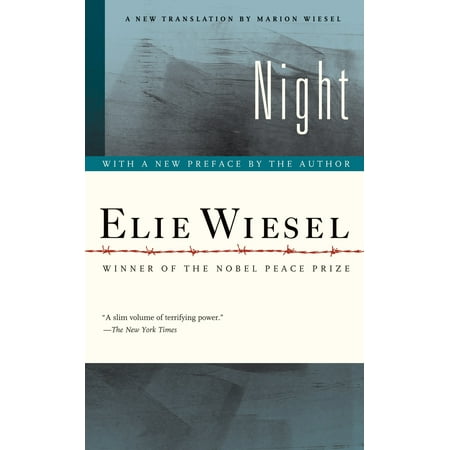“Indifference, to me, is the epitome of evil.” ~ Elie Wiesel (September 30, 1928 – July 2, 2016)
When, in 1990, at the age of 39, I emigrated from the USSR to the United States, I did not know about Elie Wiesel, Anne Frank and other victims — or survivors — of the Holocaust. In fact, I didn’t even know the term “Holocaust.” And not because I was a bad student who failed to learn it in school, but because the anti-Semitic politics of the Third Reich were not covered in our school curriculum and our mass media — not before nor during WWII, nor afterwards. As a result, the atrocities that were well known in the West were hardly mentioned in the East. There, coverage of WWII was dedicated to the bravery and suffering of Soviet troops, and, until 1956, to Stalin’s military genius. So the mass killings of Jews – in Europe and Ukraine — did not qualify.

(Reproduction of the photo depicting Babi Yar ravine near Kiev, Ukraine, the place where 100,000 people, overwhelmingly Jews, were murdered in September 1941.)
This is not to say that the Russian population had it easy. The war was devastating for the USSR. Overall, more than 26 million Russian citizens died during the war, not to mention those who came back as invalids and hopeless alcoholics. Still, the fact that the Jews were systematically exterminated was not revealed in Russia (where casual anti-Semitism was the norm) for a very long time. Well, we knew about concentration camps, including Auschwitz, Treblinka and Buchenwald. In fact, there was a popular song written about the latter, which went like this:
“People of the world stand up a moment
Listen, listen. It buzzes from all sides
It can be heard in Buchenwald ringing off the bells
It’s innocent blood reborn and strengthened in a brazen roar.
Victims are resurrected from the ashes …”
Yet again, we were never told that the main goal of a camp like Auschwitz was the implementation of “The Final Solution of the Jewish Question.” Historians estimate that among the people sent to Auschwitz there were at least 1,100,000 Jews from all the countries of occupied Europe, over 140,000 Poles, approximately 20,000 Gypsies from several European countries, over 10,000 Soviet prisoners of war, and over 10,000 prisoners of other nationalities.
When I found myself in Columbia, MO, and I had learned enough English to start reading, books about the Holocaust were not high on my list. First, I needed to learn about my adoptive country, its history, culture and customs. So, when one day (I was already working at the Reference Desk of the Columbia Public Library) a teenage girl came to me and asked about “The Diary of a Young Girl,” I had no idea what that book was about. I just looked it up in the library catalog. And later, when another patron was looking for “Night” by Elie Wiesel, I didn’t know anything about that book either. In fact, I had trouble spelling “Wiesel.”
Time went by and I learned about the Holocaust, about Anne Frank and Elie Wiesel and others. I saw a collection of victims shoes in the United States Holocaust Memorial Museum in Washington (the Nazis confiscated their victims’ belongings and sent valuables back to Germany; the shoes were to be repaired by the camps’ prisoners and reused).
And I heard a reading of names of the Jewish children murdered during the Holocaust (1.5 million names in all) in the Yad Vashem Children’s Memorial in Jerusalem, which is housed in an underground cave and lit by candles that, reflected in a system of mirrors, create the impression of millions of little stars. (The complex was built with donations from a family whose two-and-a-half old son was killed in Auschwitz.) And when I was read “Night,” I could hardly keep from screaming; for the way I felt, it all could have happened to me, my parents and my daughter.
![]()
(Yad Vashem Children’s Memorial, Jerusalem, Israel)

There are some events so cruel and traumatic that people don’t want to talk about them, even less read about them. In fact, when Wiesel’s “Night” first appeared in print (in Yiddish) in 1954, its publication was hardly noticed. In America, when the book was published in 1960, it wasn’t an overnight success either. Gradually, though, it began attracting more attention, and when, in 2006, Oprah Winfrey presented “Night” to her book club, it became a New York Times bestseller.
Wiesel went on to write many more books and to become a Nobel Peace Prize laureate. Above all, he remained a voice for Holocaust victims and survivors – the mission he considered the most important in his life.
“If I survived,” Wiesel said in 1981, “It must be for some reason. I must do something with my life… because in my place, someone else could have been saved. And so I speak for that person.”
©Svetlana Grobman. All Rights Reserved


 Where I came from (Moscow, Russia), we never volunteered — at least not in the American way. The thing was that we didn’t have to — authorities “volunteered” us when and where they desired. The “without getting paid” part (see definition above) worked the same way as it does in America. As for the willingness, nobody ever cared to ask.
Where I came from (Moscow, Russia), we never volunteered — at least not in the American way. The thing was that we didn’t have to — authorities “volunteered” us when and where they desired. The “without getting paid” part (see definition above) worked the same way as it does in America. As for the willingness, nobody ever cared to ask.



